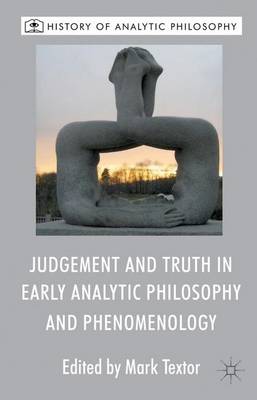The prevalent view of judgement in late Modern philosophy was the idea that judgement is the synthesis of representations into a unity. The synthesis model of judgement proved to be highly influential. Idealists on the Continent and in Britain conceived of judgement as a unifying act. However, the end of the nineteenth century and the beginning of the twentieth century saw a major change in the theory of judgement. Early analytic philosophers such as Frege, Russell and Wittgenstein as well as phenomenologists such as Brentano, Husserl and Reinach changed how philosophers think about judgement. This collection explores and assesses the contributions of these philosophers to the theory of judgement. Its historical approach allows us to get a clearer picture of judgement and the related notion of truth. The book will be of interest for anyone working on the history of analytic philosophy, phenomenology and philosophy of mind.
- ISBN10 1137286334
- ISBN13 9781137286338
- Publish Date 4 February 2013 (first published 1 January 2013)
- Publish Status Active
- Publish Country GB
- Imprint Palgrave Macmillan
- Format eBook
- Pages 286
- Language English
